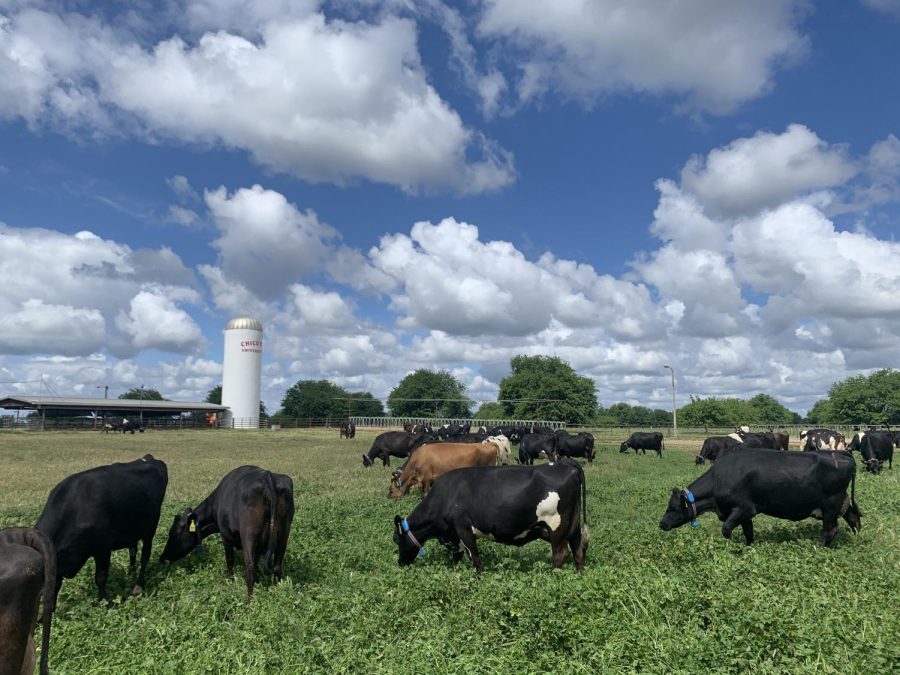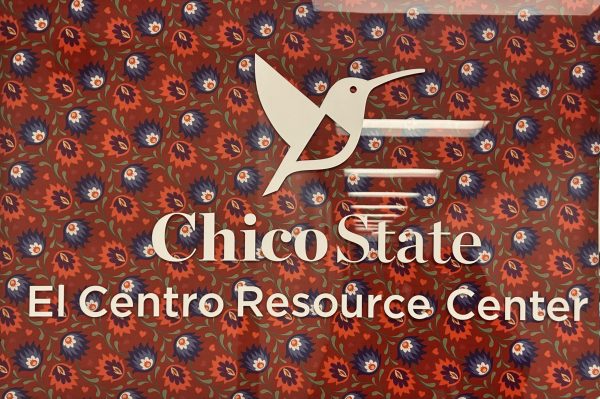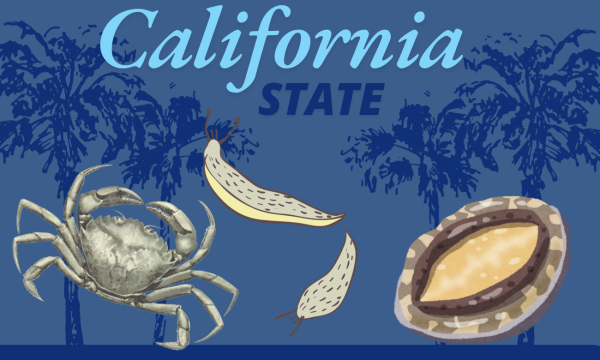Strap on your boots and hop on a tractor at Wildcat Day on the Farm
The College of Agriculture invited the community to its annual Wildcat Day on the Farm on April 22 from 10 a.m. to 3 p.m., where they gave visitors a student-guided tour of the 800-acre University Farm. This year’s event just happened to fall on Earth Day.
“Wildcat Day on the Farm is our open house for the campus and Chico community to showcase the work that the university, students and faculty are doing to promote a sustainable future for agriculture,” said Sarah DeForest, external relations director.
The University Farm was founded in 1960 to serve as a hands-on-learning laboratory — with 20 courses held at the farm — and as a place for students to work in order to gain experience in the field of agriculture.
Wildcat Day on the Farm initially began in 2018 to showcase the farm to students and faculty outside the agriculture department, however the event has shifted to include the entire Chico community.
From there visitors could either take the tour by foot or hop on a tractor. The tour stopped in several locations throughout the farm, including the livestock units, greenhouses, Organic Vegetable Project, Meats Laboratory and crops and orchards.
The Organic Dairy Unit offered visitors an opportunity to come close-up to observe a cow get milked, and also get the chance to milk one themselves. The farm has 80 dairy cows that are overseen by the Dairy Management Team.
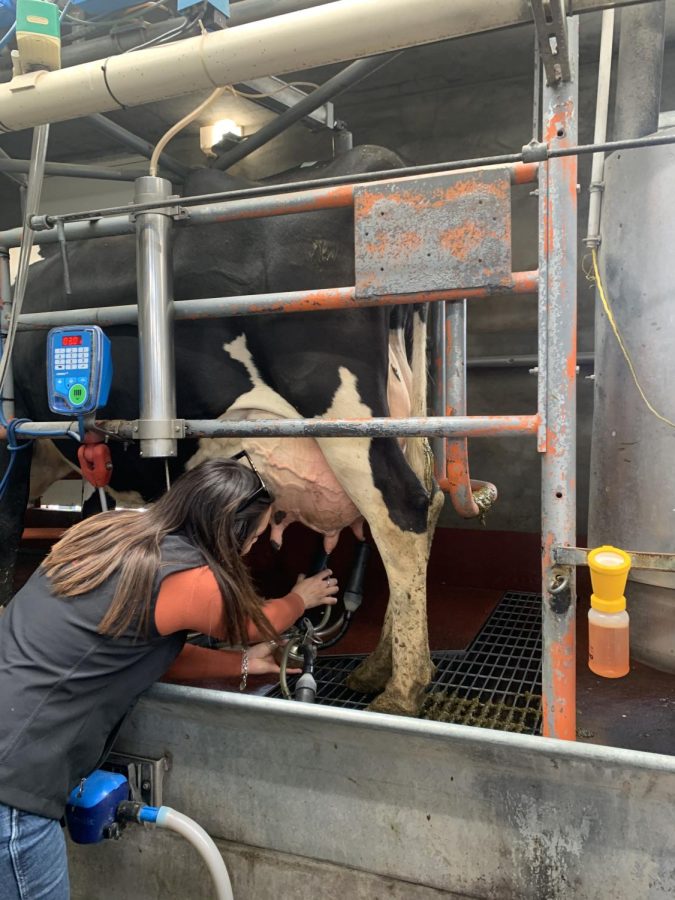
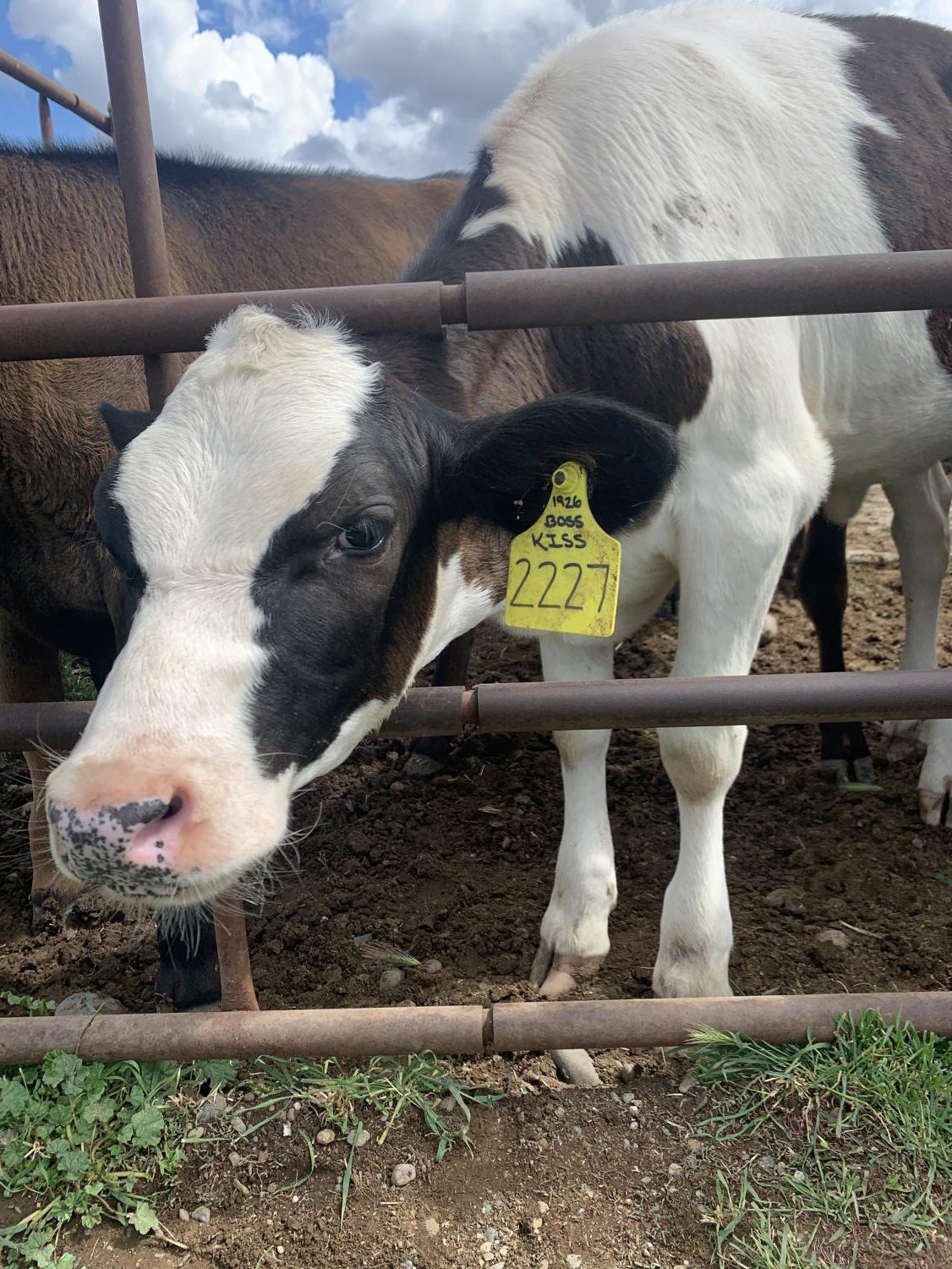
Student herdsman Mary Holbert said because the cows are certified organic, the team has to make sure the cows are always eating in a new pasture. She said that the cows graze on grass for 15 to 20 hours each day.
“We take a lot of pride in our pastures, we take a lot of time managing them,” Holbert said. “We want the cows to consume as much grass as they can.”
Milk handlers come to buy milk daily from the farm and distribute it to Organic West Milk Inc.
In the Beef Unit, 55 cows and 55 calves also graze the pasture. Contrary to the dairy cows, which are called Friesians, the cattle in the beef unit are purebred Black Angus cows.
“We bring some of our cattle over to the Meats Lab to process there,” employee Katie Coe said. “We also sell some of our cattle in private sale as well as selling at the Orland livestock yard.”
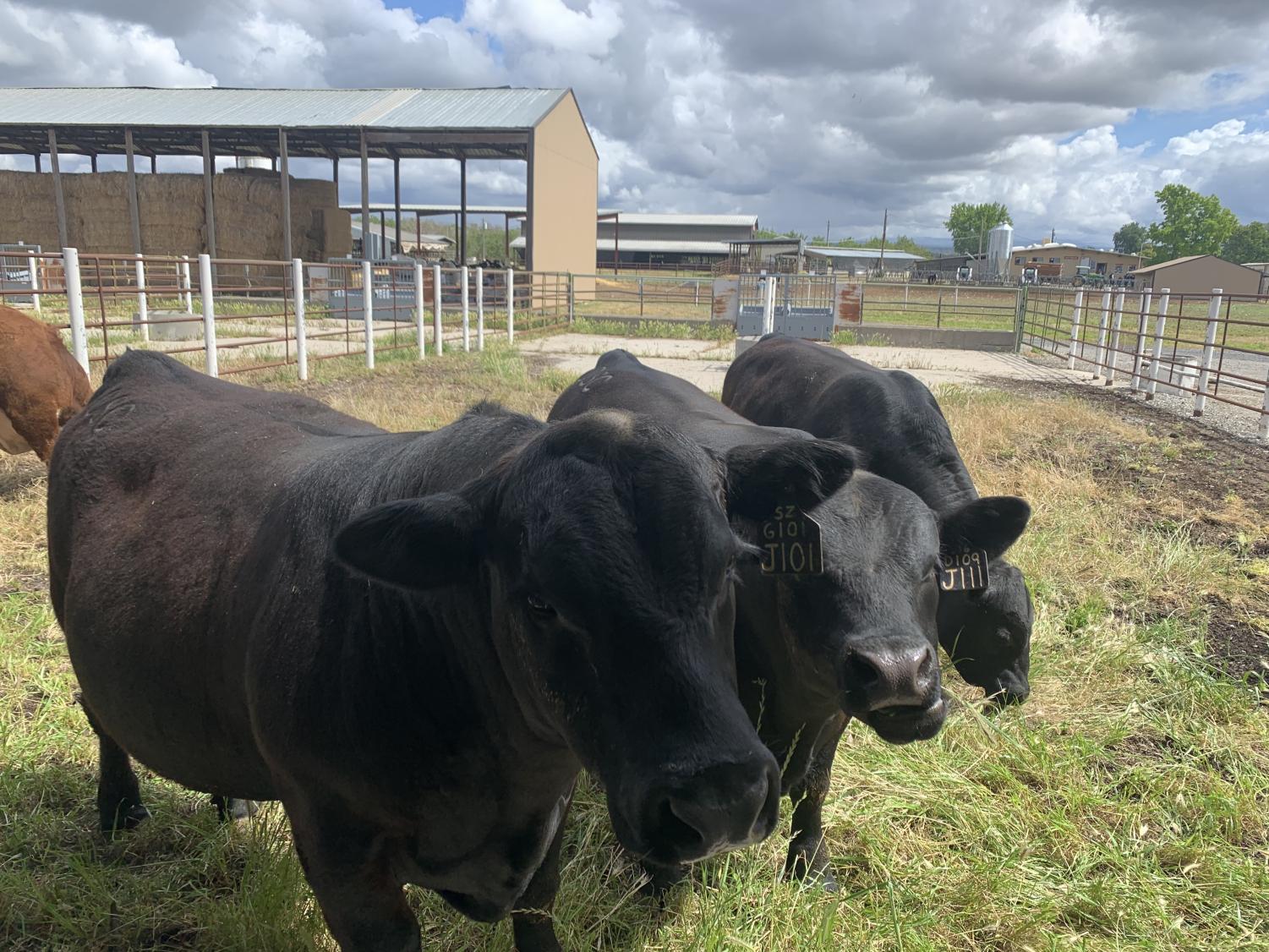
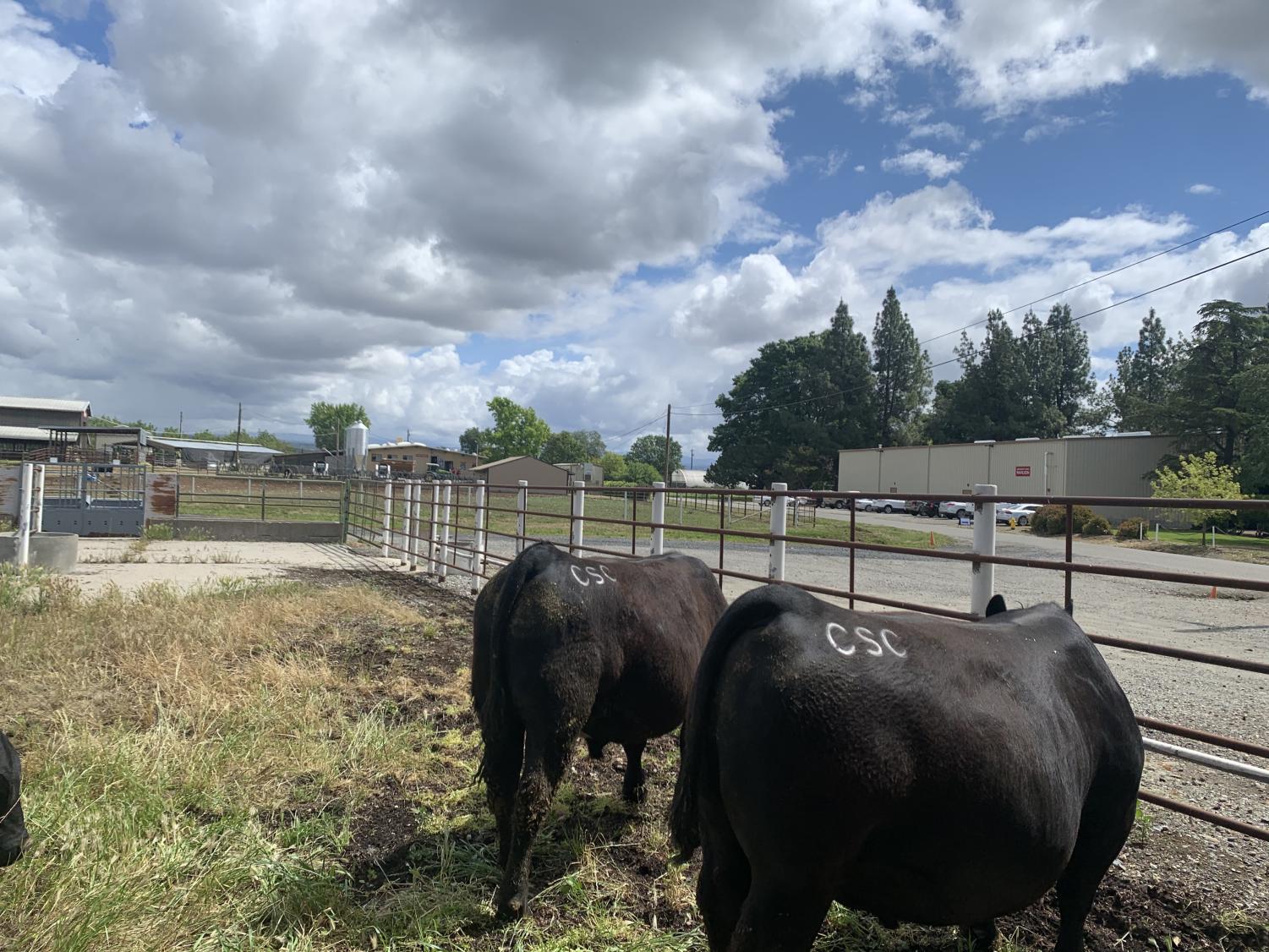
The Meats Laboratory sells meat from the livestock units to the public every Thursday and Friday from 8 a.m. to 5 p.m.
The tour also showed the swine and lamb unit, where pigs and sheep are bred. Visitors were allowed to pet the sheep, however the pigs and piglets had to be observed from a distance.
According to third-year student Amanda King, pigs are mostly sold to local 4-H and FFA members early in the calendar year. In the summer months, most of the offspring are brought to the Meats Laboratory.
Another employee in the Swine Unit, Malia Telles, expressed her favorite part about working with pigs — their unique personalities.
“My favorite is Princess,” Telles said. “In the morning when you come to do cleaning and feeding, she’ll stand up and say good morning to you. I think it’s super cute.”
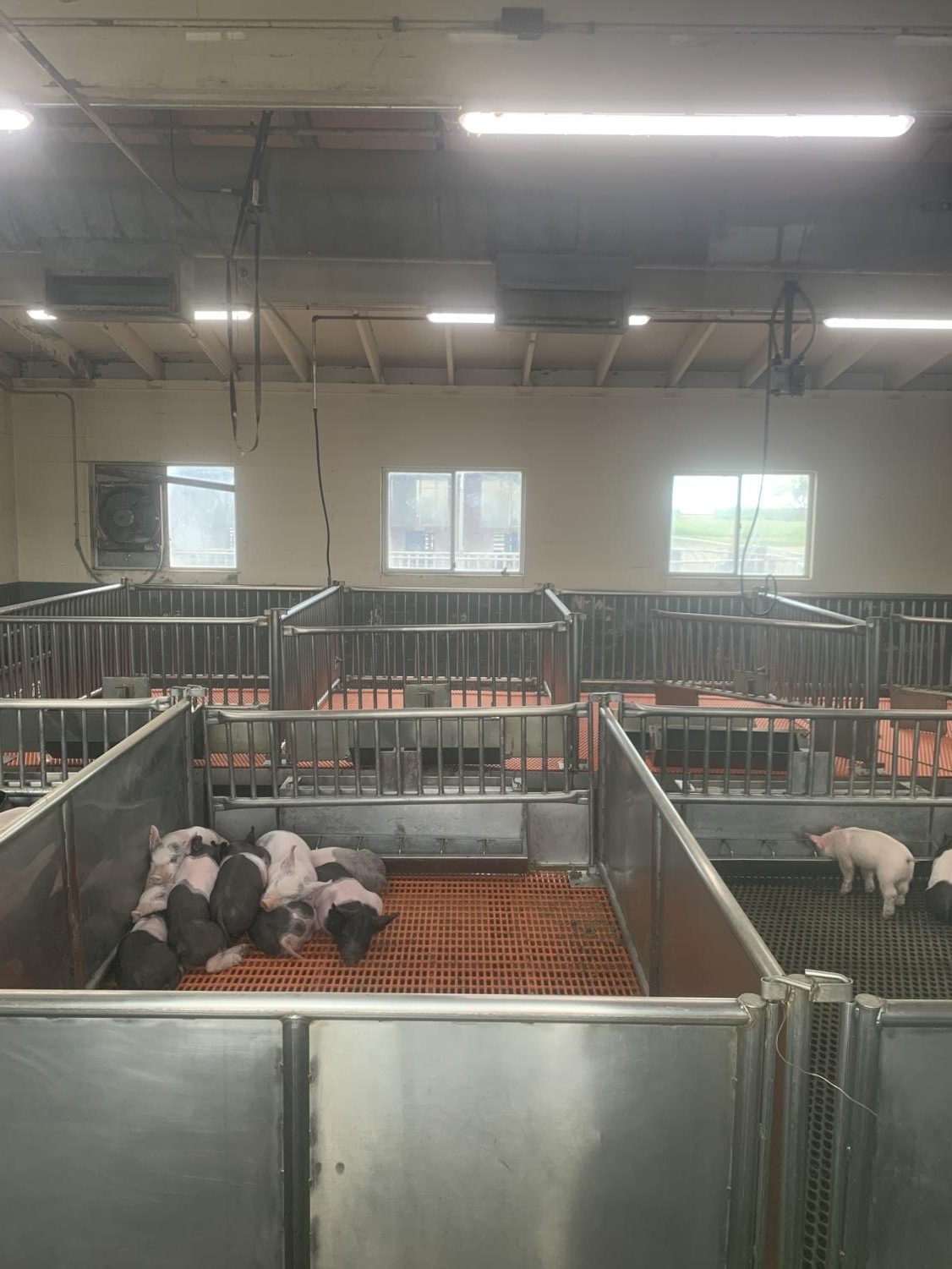
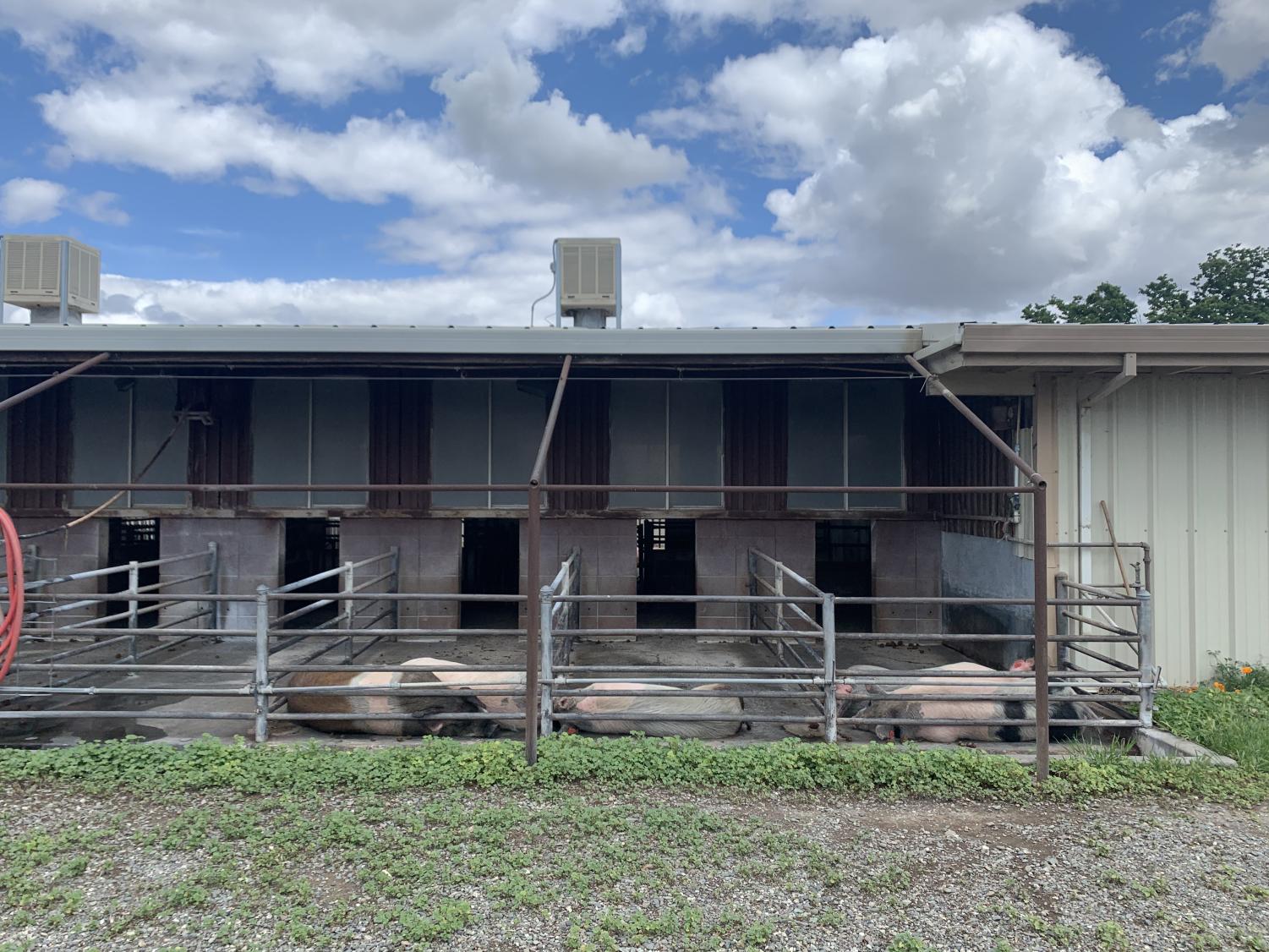
On the other side of the farm, visitors were brought to the crops and orchards unit where the tractors were on display. Out of the 800 acres on the farm, 500 of those are used to grow crops and orchards.
“We have 100 acres of walnuts, around 60 or 70 acres of almonds and 10 acres of peaches,” senior Tommie Gallaty said. “The rest of it is all of the other crops we have.”
Gallaty said the crops and orchards unit is just finishing up with their sunflower crops and will be ready to harvest sometime in the late summer and early fall. She also said that peach sales are their most popular event, and that they expect that the peaches will be available sometime in August.
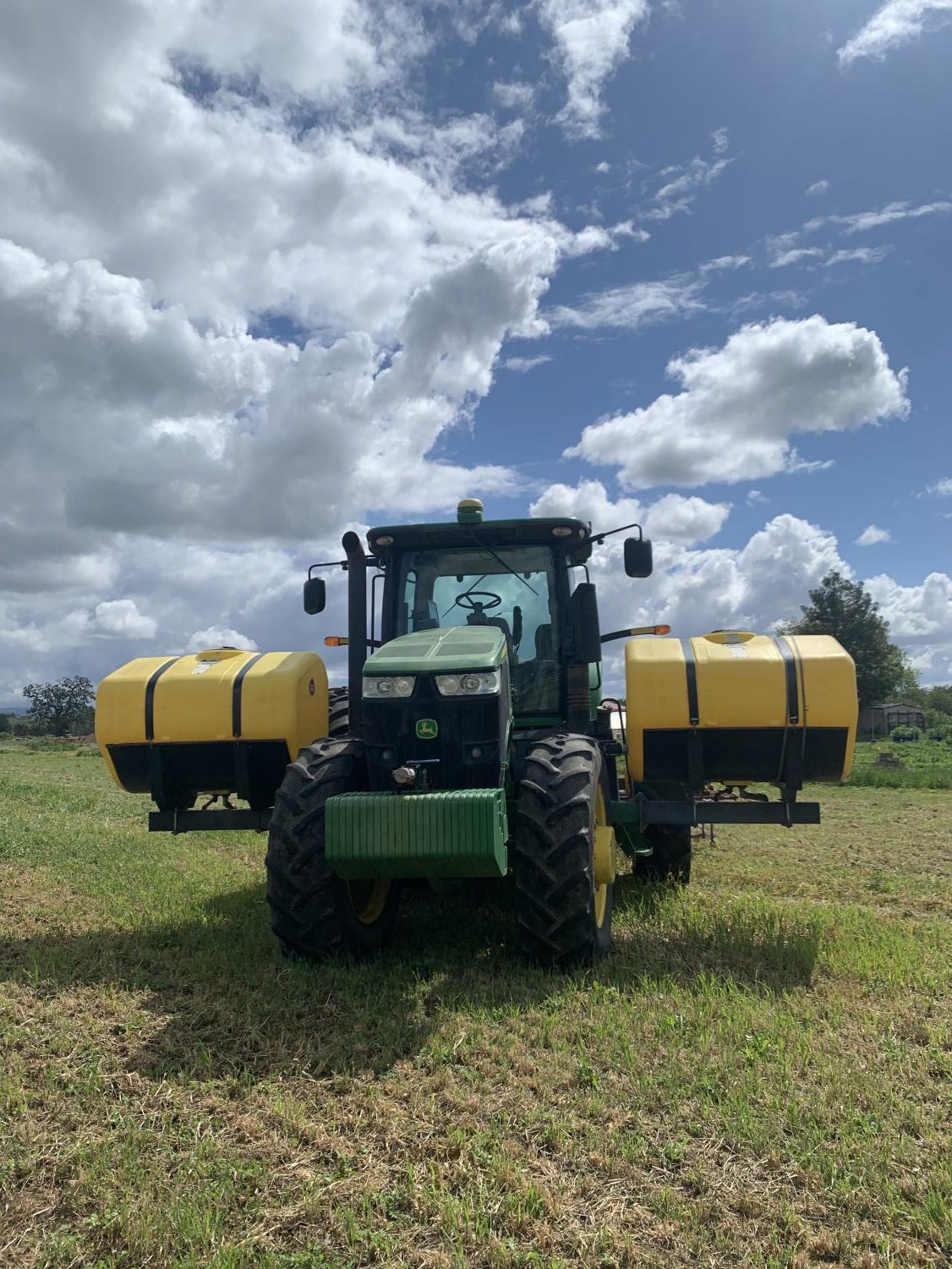
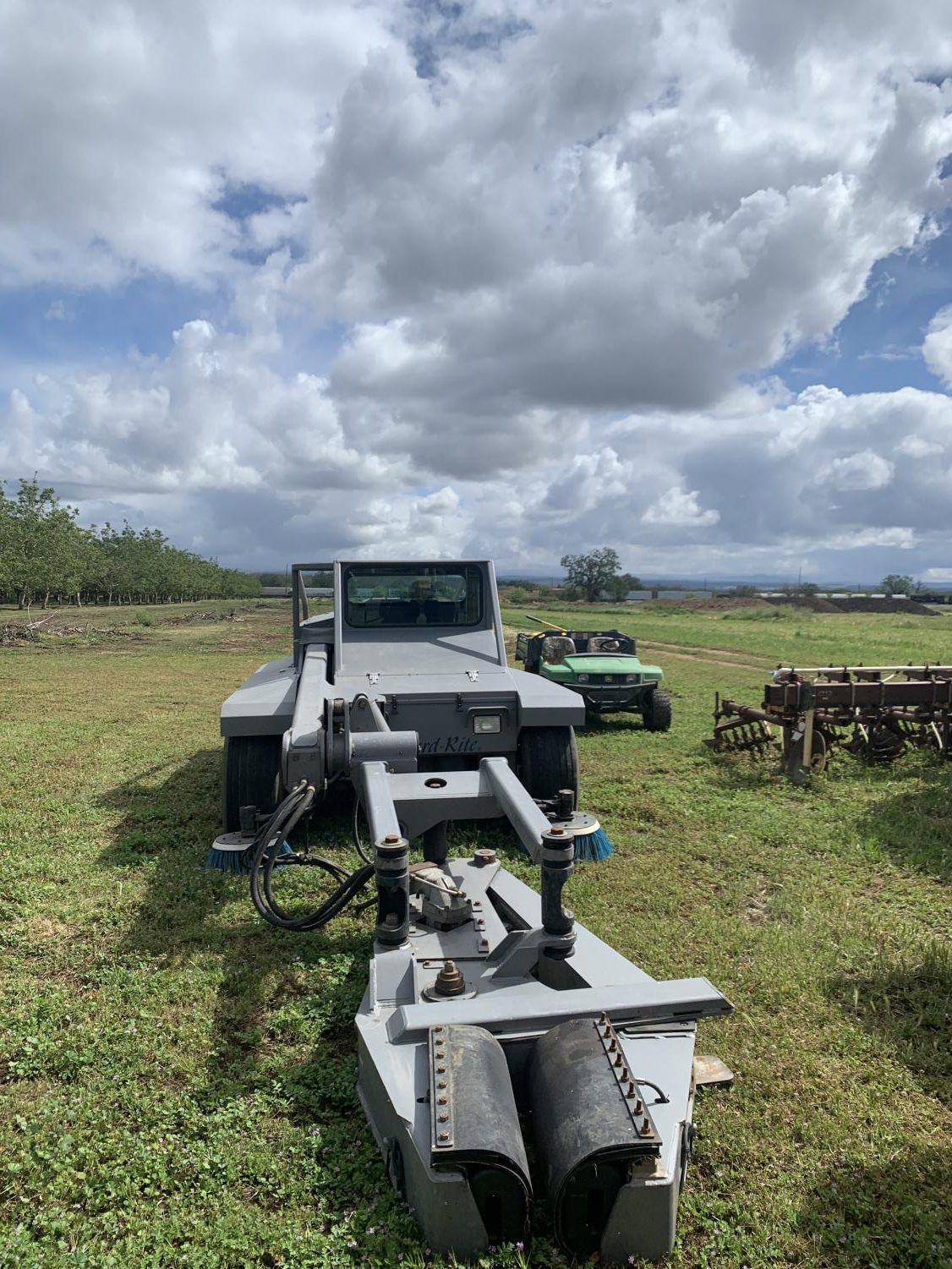
The next stop was the greenhouses, where the Crop Science and Horticulture Club sold houseplants. Visitors could also buy starter plants from the greenhouse interns to grow food in their garden.
At the edge of the farm sits the Organic Vegetable Project, a 3-acre plot that grows 50 kinds of vegetables for Community Supported Agriculture members, the Hungry Wildcat Food Pantry and the dining hall.
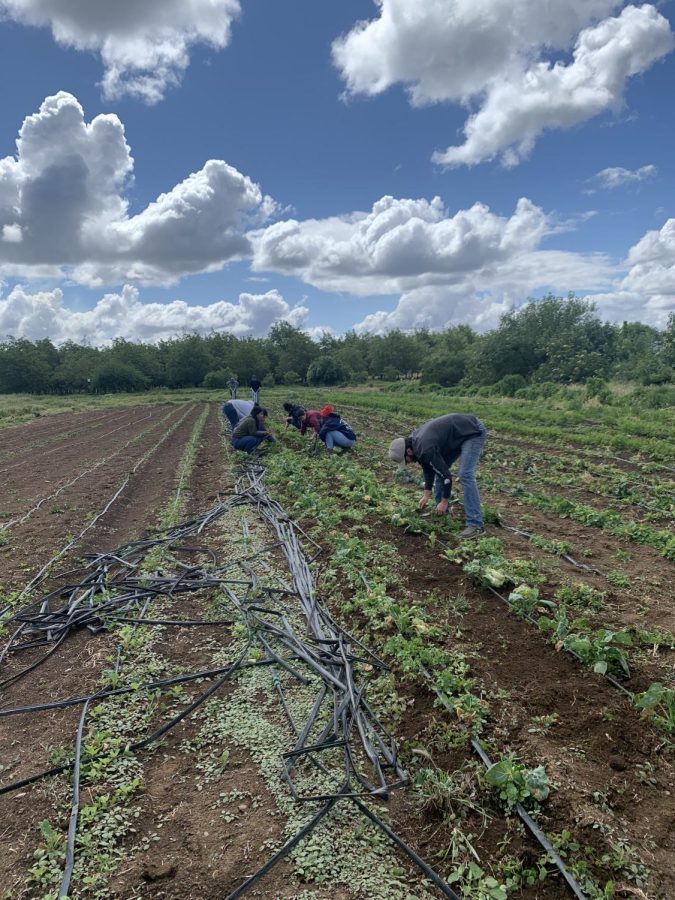
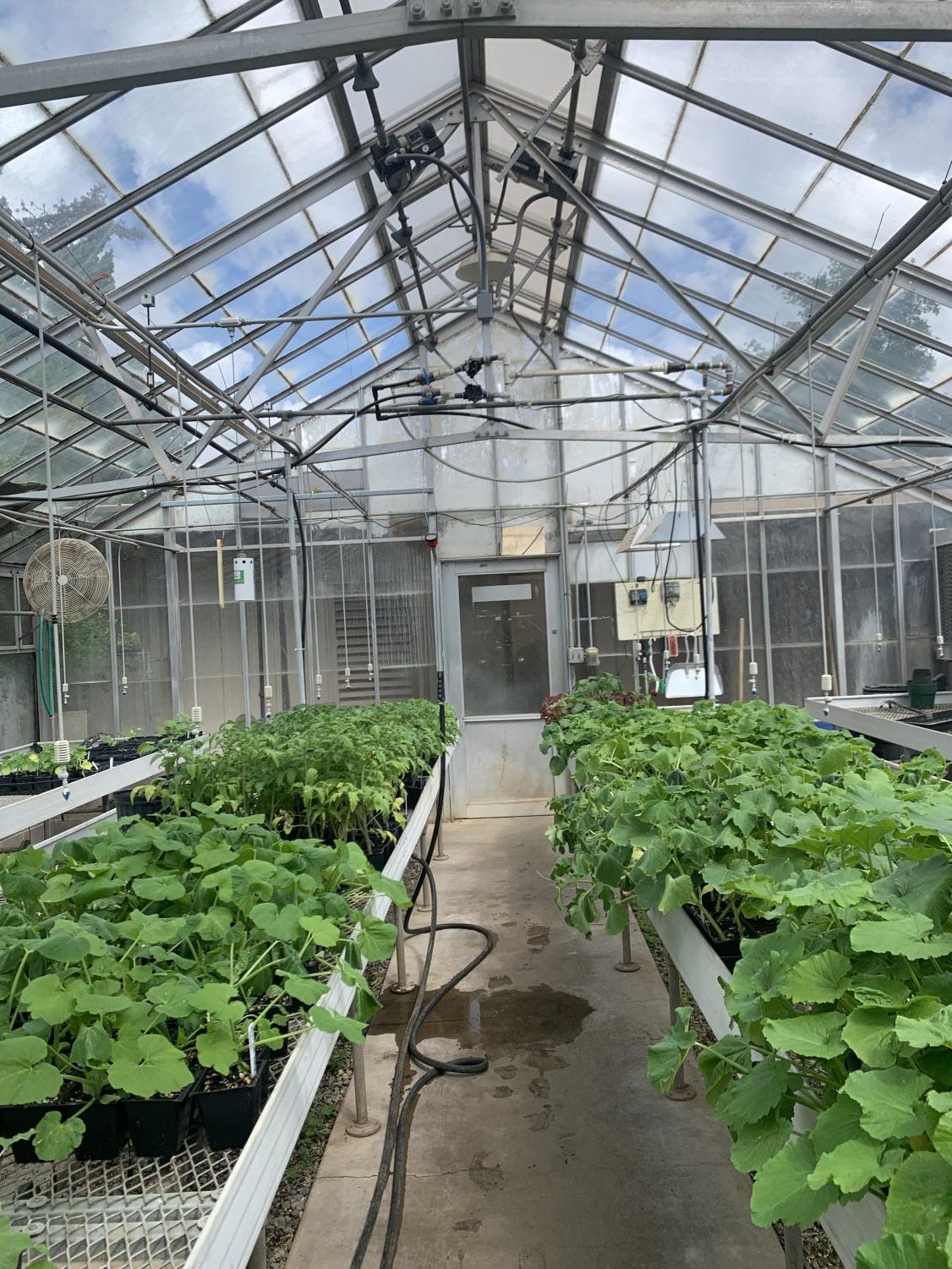
CSA members pay monthly for a weekly produce box. To become a member, one only needs to put their name on a waitlist and members will be accepted depending on the availability of the vegetables.
Dr. Jamal Javanmardi, director of the Organic Vegetable Project, encourages everyone to come out and help.
“This is a great opportunity for everybody,” Javanmardi said. “If anybody is interested in getting their hands dirty, get real experience in organic vegetable production, everybody is welcome.”
For those who missed Wildcat Day on the Farm, the University Farm offers tractor-tours every third Friday of each month at 2 p.m.
Gabriela Rudolph can be reached at [email protected].




